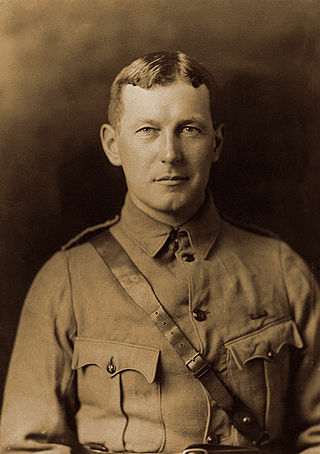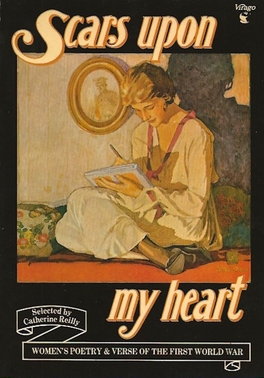Related Research Articles

Dame Carol Ann Duffy is a Scottish poet and playwright. She is a professor of contemporary poetry at Manchester Metropolitan University, and was appointed Poet Laureate in May 2009, and her term expired in 2019. She was the first female poet, the first Scottish-born poet and the first openly lesbian poet to hold the Poet Laureate position.

Ella Wheeler Wilcox was an American author and poet. Her works include the collection Poems of Passion and the poem "Solitude", which contains the lines "Laugh, and the world laughs with you; weep, and you weep alone." Her autobiography, The Worlds and I, was published in 1918, a year before her death.

"Ode to the West Wind" is an ode, written by Percy Bysshe Shelley in 1819 in Cascine wood near Florence, Italy. It was originally published in 1820 by Charles Ollier in London as part of the collection Prometheus Unbound, A Lyrical Drama in Four Acts, With Other Poems. Perhaps more than anything else, Shelley wanted his message of reform and revolution spread, and the wind becomes the trope for spreading the word of change through the poet-prophet figure. Some also believe that the poem was written in response to the loss of his son, William in 1819. The ensuing pain influenced Shelley. The poem allegorises the role of the poet as the voice of change and revolution. At the time of composing this poem, Shelley without doubt had the Peterloo Massacre of August 1819 in mind. His other poems written at the same time—"The Masque of Anarchy", Prometheus Unbound, and "England in 1819"—take up these same themes of political change, revolution, and role of the poet.

War poetry is poetry on the topic of war. While the term is applied especially to works of the First World War, the term can be applied to poetry about any war, including Homer's Iliad, from around the 8th century BC as well as poetry of the American Civil War, the Spanish Civil War, the Crimean War and other wars. War poets may be combatants or noncombatants.

Dame Margaret Isabel Cole was an English socialist politician, writer and poet. She wrote several detective stories jointly with her husband, G. D. H. Cole. She went on to hold important posts in London government after the Second World War.

Fredegond Cecily Shove was an English poet. Two collections of her poetry were published in her lifetime, and a small selection also appeared after her death.

Lady Margaret Sackville was an English poet and children's author.
Jon Howie Stallworthy, was a British literary critic and poet. He was Professor of English at the University of Oxford from 1992 to 2000, and Professor Emeritus in retirement. He was also a Fellow of Wolfson College, Oxford, from 1986, where he was twice acting president. From 1977 to 1986, he was the John Wendell Anderson Professor of English at Cornell University.

Grace Nichols FRSL is a Guyanese poet who moved to Britain in 1977, before which she worked as a teacher and journalist in Guyana. Her first collection, I is a Long-Memoried Woman (1983), won the Commonwealth Poetry Prize. In December 2021, she was announced as winner of the Queen's Gold Medal for Poetry.

Imtiaz Dharker is a Pakistani-born British poet, artist, and video film maker. She won the Queen's Gold Medal for her English poetry and was appointed Chancellor of Newcastle University from January 2020.

The Assessment and Qualifications Alliance has produced Anthologies for GCSE English and English Literature studied in English schools. This follows on from AQA's predecessor organisations; Northern Examinations and Assessment Board (NEAB) and Southern Examining Group (SEG).

Géza Gyóni was a Hungarian war poet. He died in a Russian prisoner of war camp during the First World War.
Nationality words link to articles with information on the nation's poetry or literature.

Nationality words link to articles with information on the nation's poetry or literature.
"Homecoming" is a 1968 poem by Bruce Dawe. Written as an elegy for anonymous soldiers, "Homecoming" is an anti-war poem protesting Australia's involvement in the Vietnam War during the 1960s. Dennis Haskell, Winthrop Professor of English and Cultural Studies at University of Western Australia, has called it "the most highly regarded poem about Vietnam written by any Australian", and Peter Pierce, the editor of The Cambridge History of Australian Literature has described it as "one of the finest threnodies in the war literature of Vietnam".

Scars Upon My Heart is an anthology of poetry written by American and British women during the First World War, compiled and edited by Catherine W. Reilly and published by Virago Press in 1981. Scars Upon My Heart is recognized as a pioneering presentation of women's literary expression during the First World War, giving voice to women's experiences, thoughts, and emotions. In the words of Jennifer Kilgore-Caradec, the book 'largely contributed to the current reevaluation of poetry written by women during World War I'.
Falling Leaves may refer to:
Eva Dobell was a British poet, nurse, and editor, best known for her poems on the effects of World War I and her regional poems.
"Education for Leisure" is a poem by Poet Laureate Carol Ann Duffy which explores the mind of a person who is planning to commit a murder. Until 2008 the poem was studied at GCSE level in England and Wales as part of the AQA Anthology, a collection of poems by modern poets such as Duffy and Seamus Heaney.
For much of the twentieth century, a deep ignorance was displayed towards British women's literature of World War I. Scholars reasoned that women had not fought combatively, thus, did not play as significant a role as men. Accordingly, only one body of work, Vera Brittain’s autobiographical, Testament of Youth, was added to the canon of Great War literature. Conversely, anthologies published mid-century such as Brian Gardner's, Up the Line to Death: The War Poets of 1914-1918, contained no mention of contributions made by women. Similarly, Jon Silkin’s 1979 anthology, Penguin Book of First World War Poetry, included the work of only two women, Anna Akhmatova and Marina Tsvetaeva. However, new research has changed ideological beliefs about the role women assumed in producing authentic accounts of war. More specifically, in Britain, research attends to an explanation of how women's war literature shaped feminist discourse during and immediately following the war.
References
- ↑ Working with Opening Worlds and Opening Lines 2003-8. Heinemann. 2004. p. 123. ISBN 978-0-435-15093-8.
- ↑ Copp, Michael (2001). Cambridge Poets of the Great War: An Anthology. Fairleigh Dickinson University Press. p. 53. ISBN 978-0-8386-3877-4.